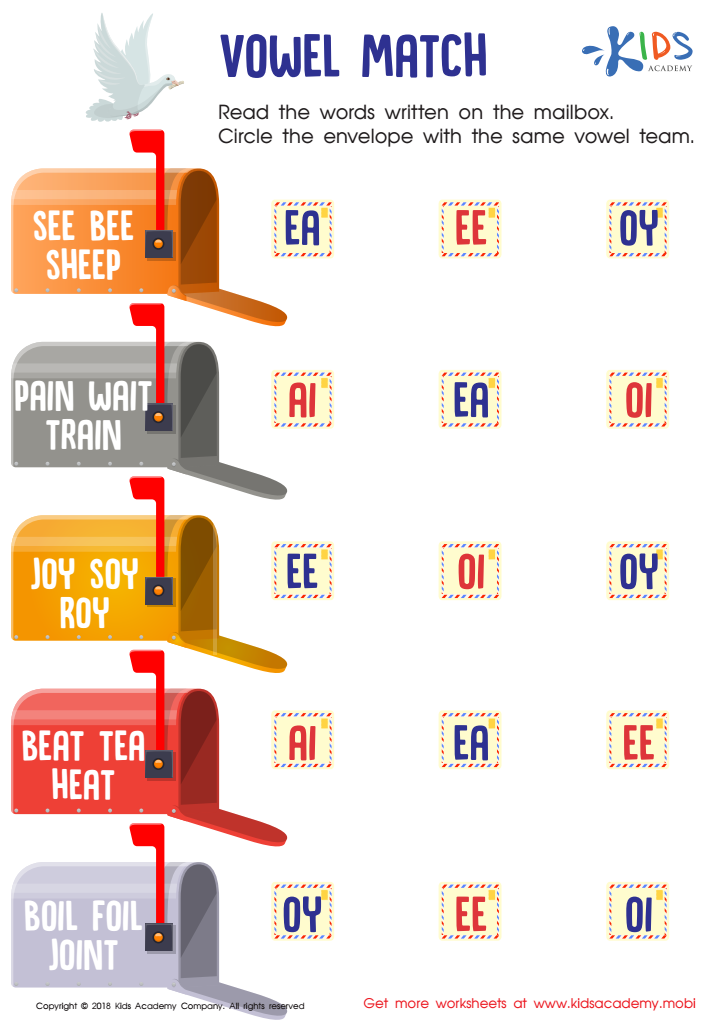Vowel Recognition Vowels and Consonants Worksheets for Ages 7-8
5 filtered results
-
From - To
Discover our engaging Vowel Recognition Worksheets designed specifically for children aged 7-8. These interactive resources help young learners identify and differentiate between vowels and consonants, enhancing their reading and writing skills. Each worksheet features fun exercises that promote active learning, ensuring kids grasp fundamental concepts while enjoying the process. From fill-in-the-blanks to matching activities, our materials cater to various learning styles. Foster a love for language as your child masters vowel sounds and enriches their vocabulary. Perfect for classroom use or at-home practice, our worksheets provide an invaluable foundation for literacy development. Start your child's journey towards reading fluency today!


Let's Check Long Vowels: Assessment Worksheet


Vowel match Worksheet


Short Vowels /e/, /i/, and /u/ Worksheet


Short Vowel Eggs Worksheet


Long and Short Vowel Sentences: Assessment Worksheet
Vowel and consonant recognition is vital for children aged 7-8 as they evolve into fluent readers and writers. At this stage, children transition from learning to read to reading to learn, making their understanding of phonetics essential. Vowels are the backbone of syllables and words; grasping vowel sounds helps students decode new words and improve their reading fluency. Phonemic awareness, the ability to identify and manipulate sounds, enhances spelling skills and supports overall literacy development.
Teachers and parents must care about this foundational skill as it contributes to strong vocabulary development and comprehension. A command of vowels and consonants enables children to make meaningful connections between spoken and written language, bolstering their confidence. Furthermore, children who struggle with recognizing vowels and consonants might face ongoing challenges in their academic journey. Early intervention is critical; helping them grasp these sounds can prevent future reading difficulties.
Encouraging playful engagement with letters through games, songs, and storytelling can foster a love for reading while reinforcing these skills. In an increasingly text-based world, a firm understanding of vowel and consonant sounds is essential for effective communication, empowering children to express themselves and succeed in their educational pursuits.
 Assign to My Students
Assign to My Students
















